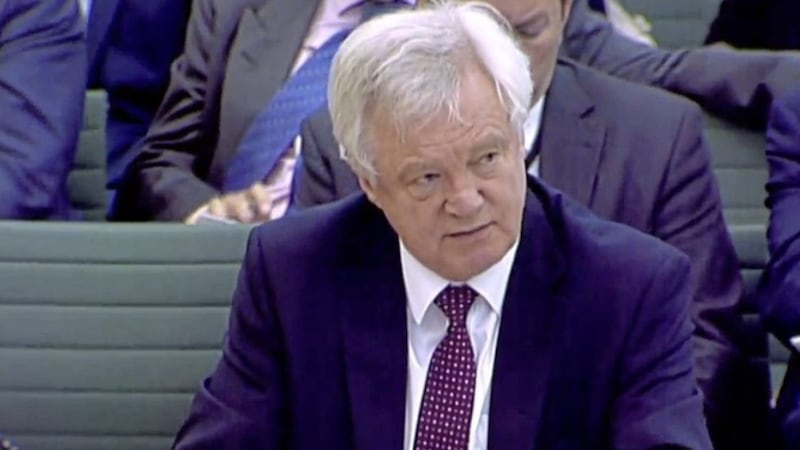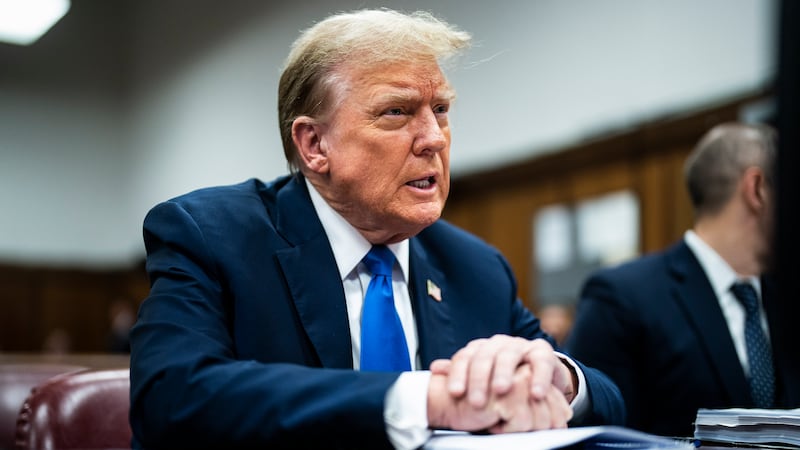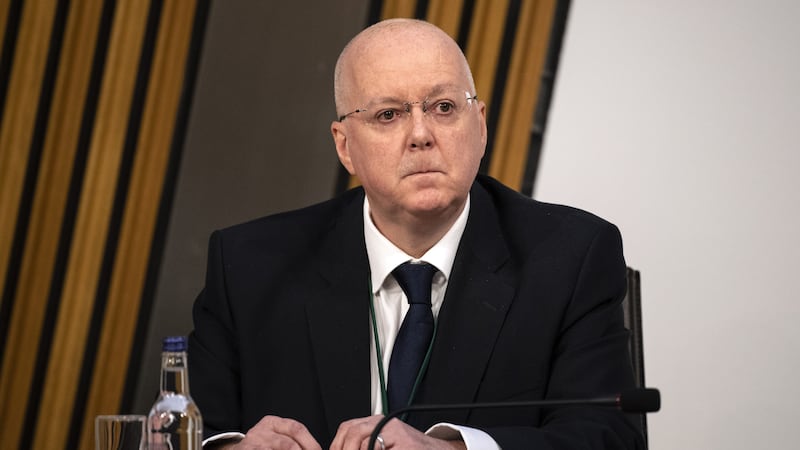A SOLUTION for the Irish border problem may not be found until after the UK has left the European Union, Brexit Secretary David Davis has conceded.
Giving evidence before a Westminster committee yesterday, Mr Davis said an agreed transition period that will see the UK remain in the customs union until January 2021 means a final solution is not needed until then.
He reiterated the British government's commitment to maintaining a soft border and claimed the best way to keep the frontier frictionless is with a "good free trade agreement" – a point he said the European Council and Taoiseach Leo Varadkar agreed with.
"That eliminates a lot of the issues from the beginning, not all of them, but a lot of them."
Mr Davis brushed aside reports that the European Council had set a deadline of June for a final decision on the border.
The Brexit secretary has previously suggested he was looking to October for an agreement.
"We're in the middle of a negotiation – one of the things that happens in negotiations is people try to set up deadlines, sometimes artificial deadlines, to put pressure on one element of the negotiation which they think is in their favour.
"We've seen a little bit of that."
However, the European Parliament’s Brexit chief negotiator Guy Verhofstadt has insisted a solution to the border problem realistically needs to be found before the European Council summit at the end of June.
He said the October deadline Britain is working to would be “late” because other issues also needed to be agreed by the autumn.
Mr Davis, who briefly visited the border on Monday, played down suggestions that British government proposals for the border had run into the sand.
Reports last week suggested that Brussels had dismissed as unworkable both of the options put forward by London, which would either see the UK collect customs tariffs on behalf of the EU or use technology to avoid delays at the border.
The reports sparked speculation that the EU is trying to edge the UK into remaining in some form of customs union – something which committee Brexiteers regard as unacceptable, as it would prevent Britain from forging new trade deals elsewhere in the world.
During the committee hearing, the Brexit secretary was warned that Britain was on track for a "constitutional crisis", after confirming that MPs will be able to amend the UK government's motion on the final EU withdrawal agreement.
He this autumn's withdrawal motion – which Prime Minister Theresa May has previously described as a "take it or leave it" choice – would relate to a political agreement with Brussels, rather than a full legal treaty.
But he told the Westminster Exiting the EU Committee that it remains the government's intention to have a treaty ready for signing immediately after the formal date of Brexit on March 29 2019.
Confirmation that the parliamentary motion will be amendable opens the door to opponents of Brexit seeking to force a vote on a second referendum.
Labour committee member Stephen Kinnock demanded to know what the government would do if MPs told ministers to go back and renegotiate the deal.
Mr Davis did not rule out the possibility, but questioned how much "force" the government would have in negotiations if it was "sent back with its tail between its legs by parliament".
"I'm not going to speculate on amendments that have not even yet been laid, let alone been passed by the house," he told the committee.
Meanwhile, representatives of Northern Ireland's fishing industry yesterday told a separate Westminster committee that they felt they were being "punished" for voting for Brexit.
Alan McCulla and Harry Wick told the Northern Ireland Affairs Committee that the threat to the local industry came from politicians in Europe.
They said 92 per cent of fishermen in Northern Ireland had voted to leave the EU.








